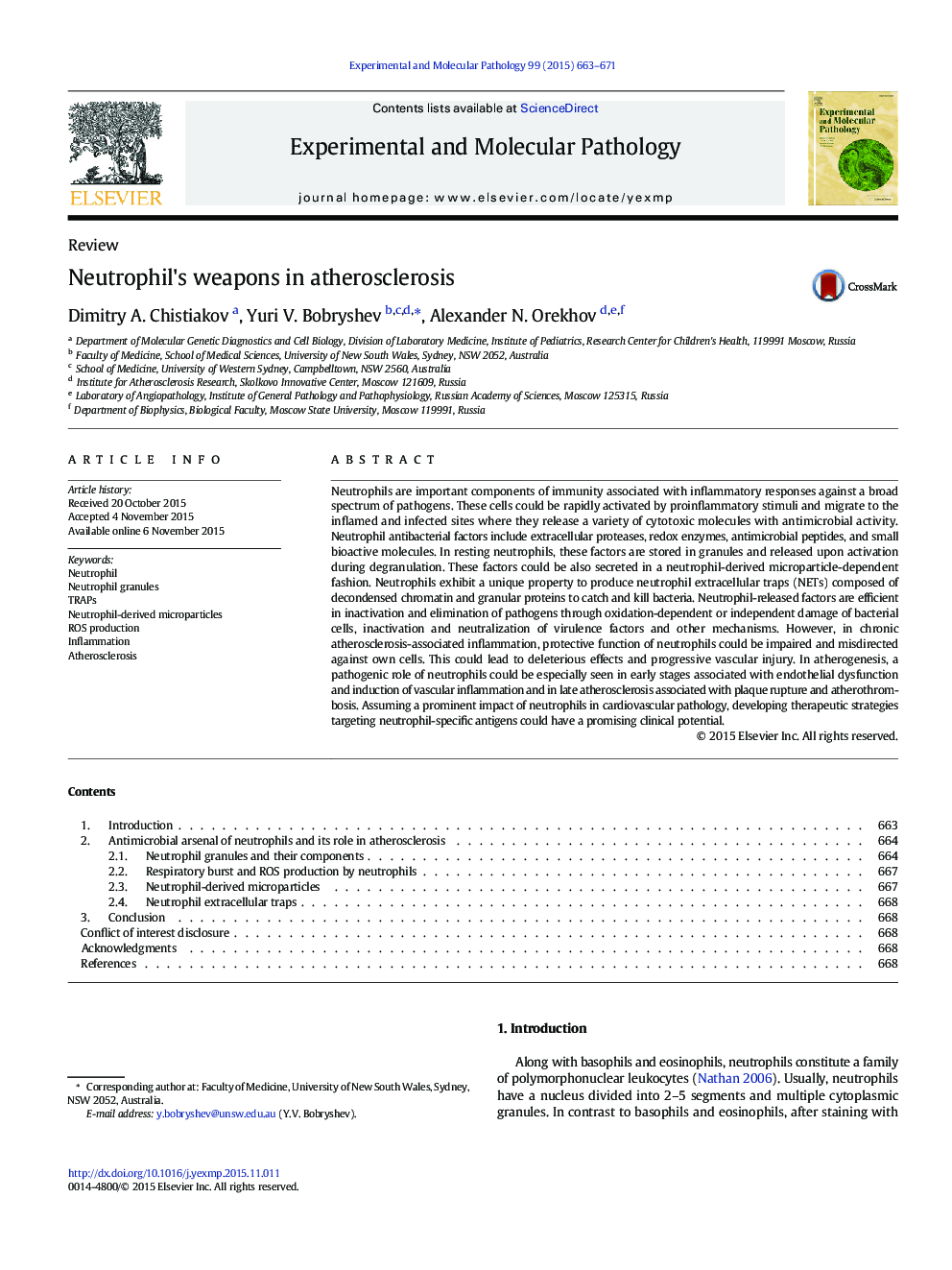| Article ID | Journal | Published Year | Pages | File Type |
|---|---|---|---|---|
| 2774908 | Experimental and Molecular Pathology | 2015 | 9 Pages |
Neutrophils are important components of immunity associated with inflammatory responses against a broad spectrum of pathogens. These cells could be rapidly activated by proinflammatory stimuli and migrate to the inflamed and infected sites where they release a variety of cytotoxic molecules with antimicrobial activity. Neutrophil antibacterial factors include extracellular proteases, redox enzymes, antimicrobial peptides, and small bioactive molecules. In resting neutrophils, these factors are stored in granules and released upon activation during degranulation. These factors could be also secreted in a neutrophil-derived microparticle-dependent fashion. Neutrophils exhibit a unique property to produce neutrophil extracellular traps (NETs) composed of decondensed chromatin and granular proteins to catch and kill bacteria. Neutrophil-released factors are efficient in inactivation and elimination of pathogens through oxidation-dependent or independent damage of bacterial cells, inactivation and neutralization of virulence factors and other mechanisms. However, in chronic atherosclerosis-associated inflammation, protective function of neutrophils could be impaired and misdirected against own cells. This could lead to deleterious effects and progressive vascular injury. In atherogenesis, a pathogenic role of neutrophils could be especially seen in early stages associated with endothelial dysfunction and induction of vascular inflammation and in late atherosclerosis associated with plaque rupture and atherothrombosis. Assuming a prominent impact of neutrophils in cardiovascular pathology, developing therapeutic strategies targeting neutrophil-specific antigens could have a promising clinical potential.
